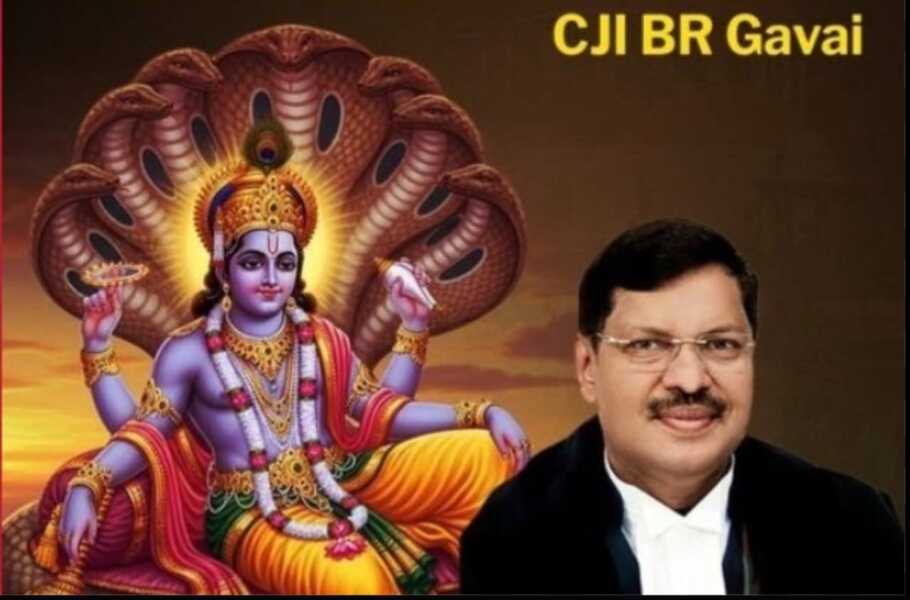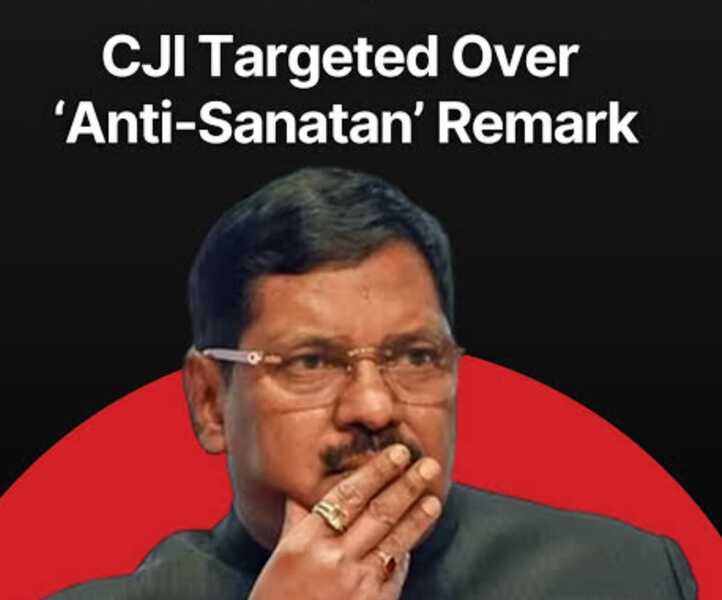Article Today, New Delhi:
The Supreme Court of India has found itself drawn into a major controversy amid growing communal tensions. Chief Justice D.Y. Chandrachud’s bench colleague, Chief Justice Gavai, became the target of both physical and online attacks after a lawyer hurled a shoe at him inside the court premises. The incident has sparked widespread condemnation and a fierce debate across the country.
Shoe Attack Sparks Outrage
The shocking act of throwing a shoe at Chief Justice Gavai has been condemned by political leaders and legal experts alike. The lawyer responsible for the act reportedly expressed no remorse and later justified his behaviour in interviews with several media outlets. The attack has prompted widespread discussions about the growing hostility towards the judiciary in public spaces and on social media.

Online Backlash and Hate Campaign
Following the incident, a wave of online trolling targeted the Chief Justice. YouTuber Ajit Bharti’s video, in which he described Justice Gavai as “unfit” and “anti-Hindu,” went viral, drawing criticism for spreading divisive rhetoric. The Noida Police questioned Bharti on Tuesday and later released him. His comments, many argued, reflected a deepening disrespect towards judicial institutions
Allegations of Anti-Hindu Bias
Ajit Bharti’s remarks that Justice Gavai holds “anti-Hindu sentiments” have sparked widespread outrage. Critics said his statements incite hatred and could provoke violence against judges. Bharti, who has over seven lakh followers on YouTube and five lakh on X (formerly Twitter), defended his statements as part of “professional journalism.” However, observers noted that such remarks risk undermining the judiciary’s independence.
Political and Public Reactions
Political leaders, including Prime Minister Narendra Modi and Congress leader Rahul Gandhi, condemned the attack on Justice Gavai, calling it an attack on the institution of justice. Many observers warned that inflammatory comments by social media influencers like Bharti could further polarize society. The controversy has been described as a “Supreme Court versus Hindu code” moment by several commentators.
Bharti’s History of Controversy
This is not the first time Ajit Bharti has faced legal trouble for his remarks. In June last year, Karnataka Police filed a case against him for spreading false claims that Rahul Gandhi supported rebuilding the Babri Masjid. During his tenure as Hindi editor at OpIndia, his account on X was suspended for equating Islam with terrorism. These past incidents add to the growing criticism that Bharti repeatedly crosses legal and ethical limits.
Legal Battles and Public Outcry
In 2019, Bharti faced a defamation suit for criticising Attorney-General K.K. Venugopal, and another case was filed in May 2025 seeking Rs.2 crore in damages over defamatory comments about TFI Media. Legal experts say such repeated offences show a pattern of disregard for judicial decorum. Meanwhile, protests and rallies were organised across several Indian cities expressing solidarity with Chief Justice Gavai and calling for stronger laws to curb online hate speech.
Demand for Accountability
The rising hostility against members of the judiciary has revived demands for stricter regulation of digital media content. Legal scholars argue that hate speech and misinformation threaten the integrity of democratic institutions. As the debate continues, the Supreme Court faces the difficult task of protecting its dignity while upholding freedom of expression in an increasingly polarised society.



